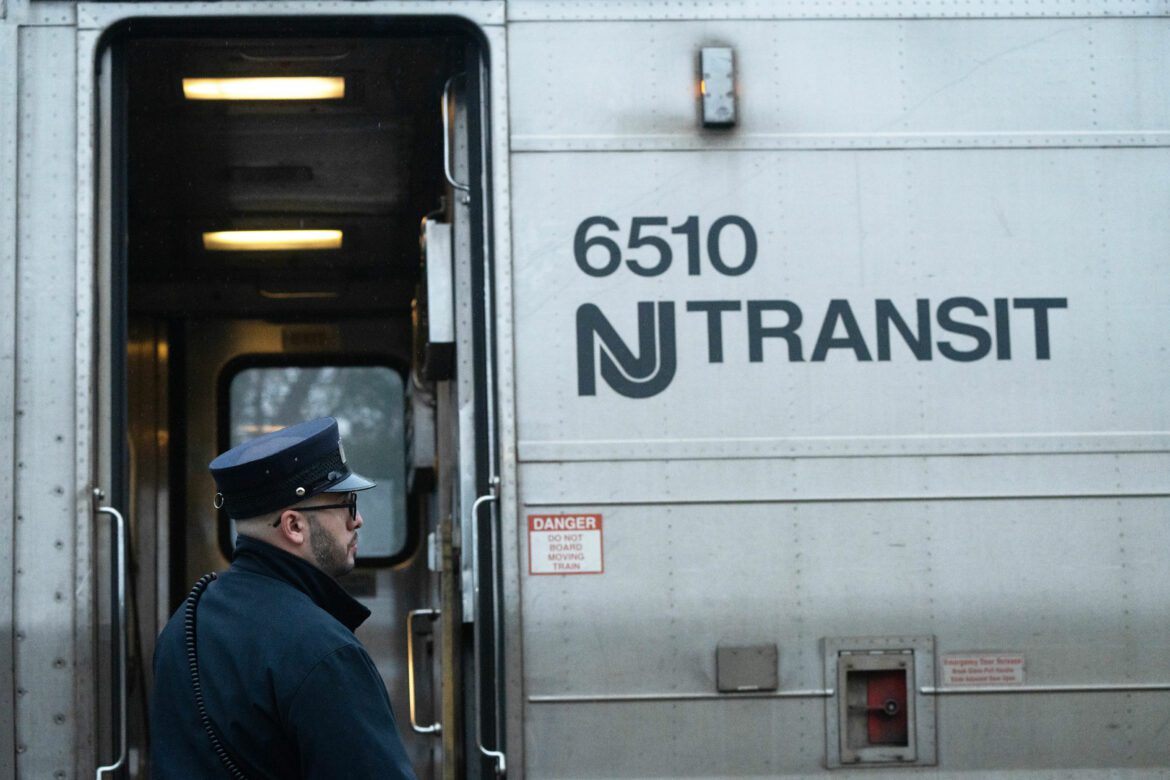Business Tax, Governor Murphy, ECONOMIC OPPORTUNITY FOR ALL
Businesses will leave NJ if they face more corporate taxes — even to bail out NJ Transit

Not long after he proposed a new state budget that would retroactively increase the state’s Corporate Business Tax, Gov. Phil Murphy promised the increase would only be temporary.
I wish we could believe him.
Unfortunately, Murphy said the same exact thing the last time he raised business taxes and then changed course at the 11th hour: a move that blindsided business owners and pro-growth advocates across New Jersey. The President of the New Jersey Chamber of Commerce went so far as to call the move a “slap in the face” for employers.
Knowing this sensitivity, the governor tried to further obfuscate the issue by marketing this new tax a “Corporate Transit Fee” but a tax by any other name is still a tax.
The justification for raising the business tax is that it would provide a lifeline of funding to NJ Transit. It’s important to note the estimated $818 million the tax will generate annually, most of which will go to NJ Transit, will be on top of the new 15% fare hike that the NJ Transit board passed last week and automatic 3% annual fare hikes. Regrettably, both the fare hikes and the tax hike are being pushed through before a comprehensive study of the agency’s finances and recommendations is complete.
Moreover, despite the proposed tax hike — which will one again make New Jersey’s corporate tax the nation’s highest — and the new fare hikes, it is still unclear whether NJ Transit will be able to balance its own books.
New Jersey’s damaged economic competitiveness needs fixing
Our anti-business tax climate has already done significant damage to our state’s economic competitiveness and has made life more difficult both for job creators and the working men and women that they employ.
Consider these facts:
- The number of Fortune 500 companies headquartered in New Jersey fell from 22 in 2006 to 15 in 2021. We lost a full third of our largest employers, with only 15 remaining.
- The state has lost between $350 and $400 billion in personal income since 1990 due to outward migration. The state’s total personal income would be about 30% larger today if not for people and businesses leaving.
- Between 2005 and 2020 New Jersey has lost population and income to all but two of the other 49 states.
- The state’s population has fallen relative to the rest of the nation in every year for the last three decades.
- The NJ Business and Industry Association 2024 Regional Business Climate Analysis shows New Jersey continues to remain last in the region by a wide margin in terms of business taxes and cost competitiveness.
- The NJBIA analysis shows New Jersey maintaining the highest corporate business tax rate and property tax paid as a percentage of personal income in the region.
- New Jersey also has the second highest rate in the remaining four categories: top income tax rate, state sales tax, minimum wage and maximum unemployment insurance tax contribution per employee.
I could continue this list, but the message is clear. If you want to start or expand a business, New Jersey policy makers are doing everything they can to lead you to another state.
But, here at the Garden State Initiative, we are committed to going beyond complaining and as such we recommend common sense solutions that would lead us down a more prosperous path.
What could some of the solutions be?
Last year, we released a comprehensive report titled “The Real Cost to New Jersey of Being an Outlier: The Impact of Steep Corporate Tax Rates,” which included a series of proposals aimed at making New Jersey more competitive with both our regional neighbors, as well as nationally, such as:
- Ratcheting down the CBT over a two-to-five-year stretch to match the national average rate of 5% to 6%.
- Paying for reductions in the tax rate by repealing special interest or questionable write-offs and tax exemptions. These loopholes reduce collections from the CBT by 20% to pass favor to certain companies rather than making a stronger and fairer tax structure.
- Consider eliminating the CBT altogether over the long term. The tax reduces New Jersey Gross State Product by almost $8 billion a year. Getting rid of it altogether would raise the rate of growth in personal income by roughly 30%.
- Eliminating future tax incentive programs. While certain companies will protest the elimination of existing incentives, everyone will benefit from the elimination of the CBT, creating a level playing field for all companies and a more vibrant economy moving forward.
We stand ready — as do our friends at the NJBIA, the New Jersey and Southern New Jersey Chambers of Commerce, and others — to be part of a real reform movement that changes how New Jersey does business. If that doesn’t happen, more companies are going to grow and expand their business somewhere other than New Jersey.
Audrey Lane was recently named the president of GSI after previously serving as its policy director. Lane served as a government policy and strategic messaging professional on both the municipal and state level, and served as an elected councilwoman in her hometown of Mountain Lakes. She is a graduate of Johns Hopkins University and was selected as a Member of the American Enterprise Institute Leadership Network in 2021.
